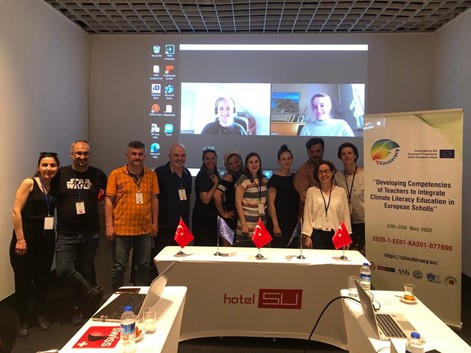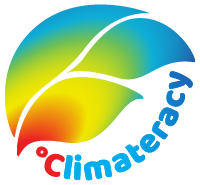The 3rd Transnational Project Meeting

Between the 24 and 26th May 2022, the 3rd Transnational Project Meeting for the Climateracy Project was held in Antalya-Turkey hosted by ANS Consultancy with the special contributions and support by our partners from Estonia, Belgium, Germany, Sweden and Turkey. Though it has been nearly one and a half years since our project started, this has been the 1st physical meeting among the partners (except for the Belgium partner who attended the meeting virtually) after postponing or cancelling meetings due to covid situation. Thanks to all project partners for their participation in this meeting, very efficient collaboration and interaction were formed, and the planned agenda was precisely followed.
The following milestones were discussed in detail and a specific plan was prepared accordingly:
- Project Management
Led by the coordinator of the Climateracy project. Tallinn University, the administrative and financial issues of the project including the specific tasks, deadlines, timesheets, diaries, next mobilities, etc. have been discussed with the partners. - IO1 – Educational Framework
The English version of our first intellectual output, the Educational Framework, is ready, and the translations of it will be completed by the partners in 1 – 2 weeks. - IO2 – Open Online Course – OOC
Partners got the opportunity to work collaboratively on the development of the online content of the modules for the Open Online Course. The Belgian partner, who is the technical expert, supported the group via zoom during the meeting. More specifically, the majority of module 0, 1 and 2 has been completed. The videos for module 0 have been developed. Partners have been focusing on modules 3 – 6 extensively. - IO3 – Online Teacher Community
Partners discussed the content and design of IO3 as well as the appropriate teachers’ resources and lesson plans to be uploaded to the platform and the involvement of teachers in the community. Thanks to the guidance of the Belgian team who have supported the partners via a Zoom meeting. - Dissemination
The first newsletter was published in November 2021 and the second newsletter has been planned to be published once IO2 is completed. The project brochure has been designed by the German partner and translated into partners’ native languages. Partners agreed to print that and distribute it to the participants in their local dissemination events. The Multiplier events have been planned to be held in partners’ countries in November 2022. Details for this (i.e. agenda, reporting) were discussed during this meeting. - Evaluation – Recommendations
Each participant is satisfied with the agenda of TPM3 and they all agreed that the spirit of meeting physically would contribute a lot to the project cycle. Based on the discussions among the partners, the following was decided:- One more physical project meeting should be conducted in October in Estonia or Germany;
- Working hard during the summer would help not to extend the project duration;
- Keep on meeting online at least once a month, or more if necessary.
